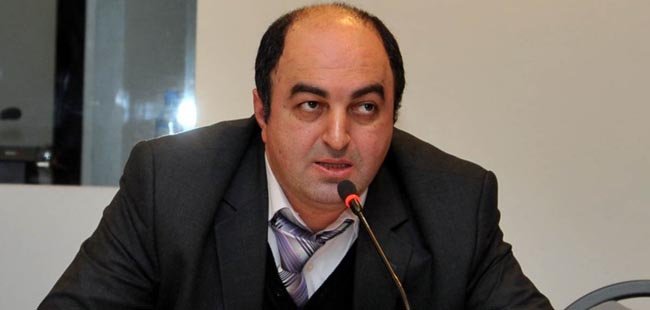On December 10, 2013, Public Defender presented a report on Human Rights and Freedoms in Georgia. The given report represents the initiative of the Public Defender of Georgia to summarize human rights and freedoms situation in the country annually, by December 10.
The year of 2013 was distinguished by being less dramatic in comparison to the previous year. Despite the fact that there have been significant steps taken in regards to human rights protection, a large number of challenges and problems still remain in terms of realization of in civil and political, as well as social and economic rights.
After 2012 parliamentary elections, there have been mass dismissals of public servants from local self-government bodies, which received an unconditionally negative evaluation from Public Defender. However, it is noteworthy that compared to the extremely tense pre-election period before the parliamentary elections, the presidential elections were held in a quiet and violence-free environment.
One of the most important achievements of this year in the field of human rights can be considered the liberalization of criminal policy, which has represented the subject of numerous recommendations of the Public Defender of Georgia. However, on the other hand, the problem of actively demonstrated intolerance by various groups became a burning issue, which in some cases did not result in adequate response.
One of the remaining key problems is the right to housing of the socially vulnerable, IDPs and people displaced as a result of natural disasters. Solving of this problem requires adoption of respective state policy.
Another alarming tendency, that was revealed during this year concerns illegal state interference into the personal life of citizens during past years. Public Defender welcomes the attempt of Ministry of Internal Affairs to destroy the unlawful recordings of personal life of individuals, but regards that without legislative foundation this type of single act cannot guarantee inviolability of personal space.
Public Defender was unable to avoid in his report the alleged facts of ill-treatment by the law enforcement officers. There are not only legislative gaps in this respect, but also the problem of practical enforcement of the legislation. It is important to revise the existing legislation for conducting the effective investigation of the facts of alleged violations of human rights by the law enforcement bodies, and to create the mechanisms that ensure independent and impartial investigation of similar cases.
This year, for ensuring the equality of parties during criminal proceedings, the right to search and seizure was granted to the defense. However, unfortunately, the issue of enforcing this amendment has been postponed by the Parliament of Georgia and the temporary rule of witness interrogation was upheld.
The report also includes the results of monitoring conducted by the National Preventive Mechanism and analysis of the applications filed to the Office of Public Defender among them:
Increased role of so-called “watchmen” in penitentiary institutions; the healthcare issues and effective forms of medical examination of people placed in penitentiary institutions. In this regard, Public Defender considers that inadequately lenient sentences for those charged with torture or humiliating or inhumane treatment was unjustified.
Public Defender welcomes the carried out amnesty, however regards that amnesty may represent only one stage in the process of restoring the justice. In order to ensure full rehabilitation of justice an effective legal mechanism should be created, within which it would be possible to restore not only dignity and reputation, but also the fair compensation for the damage unlawfully caused by the state.
During the past year, on several occasions, the state failed to ensure the right to assembly, which is safeguarded by the Constitutions, for the participants of peaceful rally due to their omission and/or improper reaction. In this regard, the most noteworthy are the attack on May 17 rally and the incident in Zugdidi, when the patrol police failed to prevent physical violence against the members of the United National Movement.
The report attributes an important role to the freedom of religion. It talks about incidents in Tsintskaro, Samtatskaro, Tsikhisdziri and Chela. Public Defender welcomes the minaret reinstallation in Chela, but expresses concern that adequate steps have not been taken in response to majority of cases of interference with religious ritual.
The issue of national minorities has not been left out either. Problems in regards to low level of civic integration and full participation of ethnic minorities in political, cultural and public life were raised.
The staff of the Public Defender of Georgia has reviewed numerous applications, which were about the issue of lawfulness of firing the public servants from public offices. In most cases the decisions on dismissing from a job are made without legal reasoning and evaluating factual circumstances of the case.
Public Defender welcomes the amendments to the Labor Code of Georgia, however considers that it is important to continue gradual modification of the Labor Code. The report also addresses labor safety. It is noteworthy, that Georgia does not have a coherent national policy on labor, health and work setting elaborated on the state level, and thus, there is no monitoring mechanism to check how well the safe environment is observed at workplaces.
2013 was declared to be the year of people with disabilities; the budgets of state social programs and consequently the coverage of beneficiaries have increased. However, lack of information about existing social, healthcare and other programs remains a serious problem. The problem of providing accessible environment to the PWDS, which is a very important thing for their full integration into the society, has not been addressed to date.
A separate chapter was dedicated to the situation on the rights of the child and to the problem that exist in this field to this date - public tolerance to the violence against the child.
Low indicator of women’s participation in the political life of the country remains to be the main challenge of gender equality.
News
December 13, 2023
Ethnic minorities outside the peace dialogue
November 6, 2023
‘Peace’ agenda of political parties
Popular
Articles
February 13, 2024




